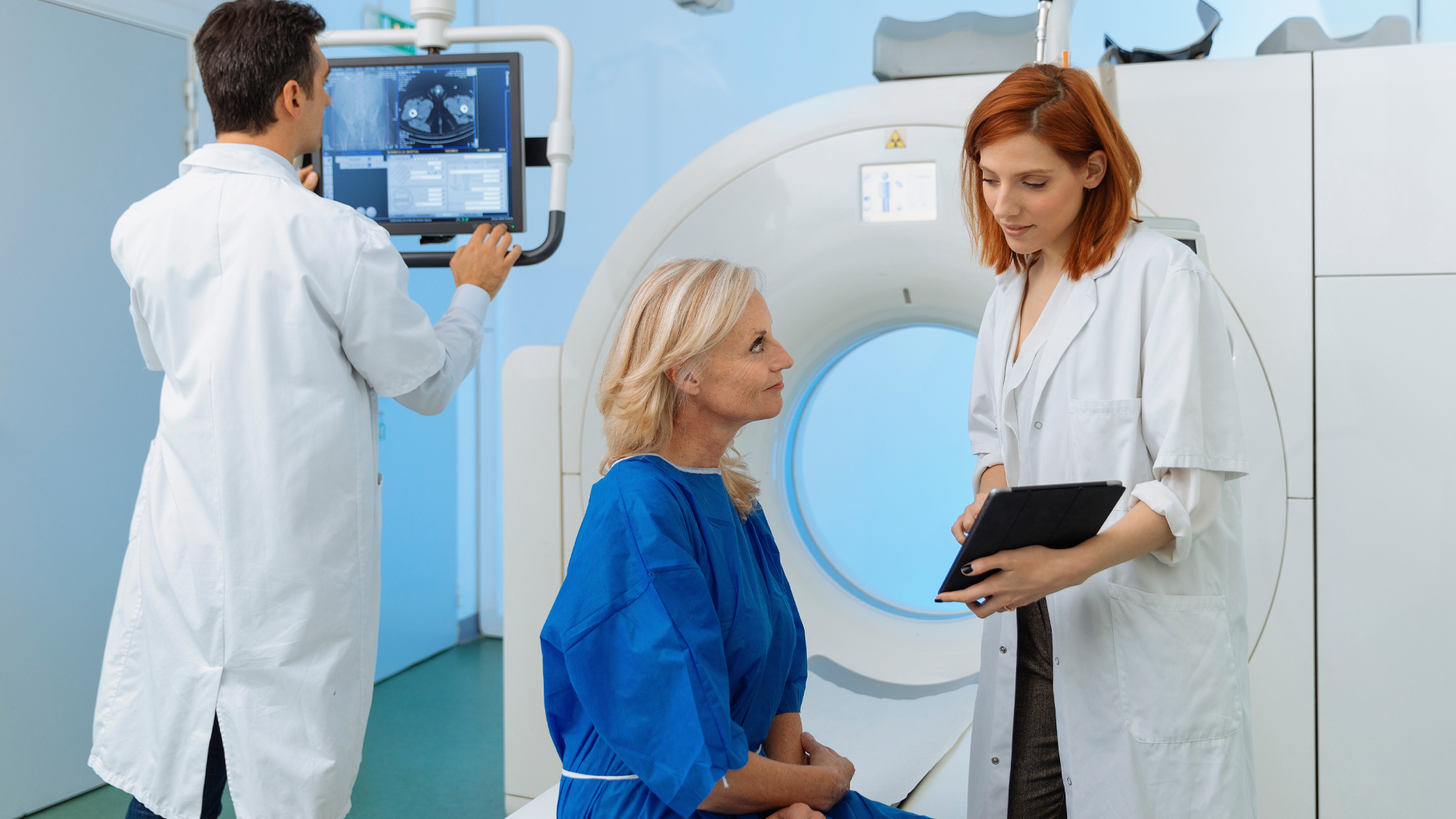MR-Based Imaging Insufficient in Assessing pCR With Neoadjuvant Therapy in Rectal Adenocarcinoma
Magnetic resonance-based imaging alone was 40% accurate in positively predicting pathologic complete response in patients with rectal adenocarcinoma undergoing total neoadjuvant therapy.

Magnetic resonance (MR)-based imaging alone is an insufficient tool for measuring pathologic complete response (pCR) in patients with rectal adenocarcinoma undergoing total neoadjuvant therapy, according to findings from a prospective imaging substudy within the NGR-GI002 study (NCT02921256), which were published in the Journal of Clinical Oncology.
The positive predictive value associated with MR tumor regression grade (MR-TRG) alone in describing pCR was 40% (95% CI, 26-53) and the negative predictive value associated with MR-TRG was 84% (95% CI, 75-94). According to the study authors, the low predictive value showcased here demonstrates a clear limitation of MR-based imaging alone for pathologic assessment.
“Our results clearly establish that MR-based determinations of pCR are limited. Such information is critical in a [neoadjuvant treatment] era in which exquisite focus is being placed on selecting patients for nonoperative management,” William A. Hall, MD, Professor of Radiation Oncology and Surgery at the Medical College of Wisconsin, and co-investigators, wrote in the study. “Physical examination and endoscopy are clearly indispensable tools for this task.”
According to study authors, total neoadjuvant therapy is a newly established standard-of-care treatment for patients with rectal adenocarcinoma. Studies have demonstrated that between 30% to 50% of patients can manage their disease without surgery through total neoadjuvant therapy. Being able to characterize and measure rectal tumor regression during neoadjuvant treatment is therefore a critically important task. Despite this, few data exist validating the accuracy of MR imaging (MRI) in this arena. Rectal MRI is the standard of care for staging these patients and for characterizing treatment responses, yet study authors argue that this method of measuring the magnitude of regression risk during neoadjuvant treatment is subjective and imprecise.
Investigators sought to understand MR-based imaging’s predictive value by evaluating it within the phase 2 NRG-GI002 trial. GI002 is a phase 2 study that is evaluating novel radiosensitizers for patients with rectal adenocarcinoma who are undergoing total neoadjuvant therapy. The primary end point of this larger parent study is pathological regression and GI002 investigators will measure pathological regression using the pathologic neoadjuvant response scores.
Across 71 institutions, 121 patients met the criteria; 28% of whom were female (n = 34) and 84% of whom were White (n = 101). The median age was 55 (24-78 years). Eighty-four patients had MRIs at 3 different time points: at baseline, postchemotherapy, and postchemotherapy-radiotherapy (post total neoadjuvant therapy). Three diagnostic radiologists conducted individual interpretations of the MRI results across the data set.
In a sensitivity analysis, MR-TRG scored 68% (95% CI, 0.51-0.85), and in a specificity analysis, MR-TRG scored 62% (95% CI, 0.52-0.73).
MRI for complete response (mriCR) was associated with a positive predictive value of 42% (95% CI; 0.26-0.58) and a negative predictive value of 82% (95% CI, 0.73-0.91). In a sensitivity and specificity analysis, respectively, mriCR scored 57% (95% CI, 0.39-0.75) and 71% (95% CI, 0.61-0.82).
Following total neoadjuvant therapy, the kappa scores for T- and N-stage were 0.38 (95% CI, 0.34 to 0.42) and 0.88 (95% CI, not available), respectively, which reflect fair agreement and near-perfect agreement. The mriCR resulted in a kappa score of 0.82 after chemotherapy and 0.56 after total neoadjuvant therapy, respectively, which represent near-perfect agreement and moderate agreement.
MR-TRG Scores Correlate With Regression Magnitude
Although MR-TRG is a poor tool to predict pCR during neoadjuvant treatment, this study suggests that the numerical grading scale does correlate with the magnitude of pathologic regression.
MR-TRG is a regression grading system that is rarely used, according to the investigators. The MR-TRG uses an ordinal score, ranging from 1 to 5, to represent the magnitude of a tumor regression. It has been studied in the non-total neoadjuvant therapy setting in multiple retrospective and smaller prospective studies.
A MR-TRG score of 1 indicates that no or minimal fibrosis visible and no tumor signal. A score of 2 indicates a dense fibrotic scar but no macroscopic tumor signal; a 3 shows the patient has fibrosis with obvious measurable areas of tumor signal. A score of 4 indicates tumor signal with little or minimal fibrosis, and a 5 shows the patient has a tumor signal only with no fibrosis.
Among 11 patients with pCR scores who received an MR-TRG score of 1, five achieved a pCR (4 pCR scores were missing). Among the 46 patients with pCR scores who received an MR-TRG score of 2, fourteen achieved a pCR (5 pCR scores were missing).
For the 45 patients with pCR scores who received an MR-TRG score of 3, eight achieved a pCR (2 scores were missing). Lastly, among the 15 patients with pCR scores who received an MR-TRG score of 4, one had a pCR-1 score (1 score was missing). No patients in this study received a MR-TRG score of 5.
Ultimately, the study revealed that MR-TRG scores were linked to pCR (P < .01) and pathologic neoadjuvant response scores (P < .001). The consensus between MR-TRG andpathologic neoadjuvant response score was 0.43.
“MRI alone is a poor tool to distinguish pCR in rectal adenocarcinoma undergoing [total neoadjuvant therapy],” study authors concluded. “However, the MR-TRG score presents a now validated method, correlated with pathologic [pathologic neoadjuvant response score], which can objectively measure regression magnitude during total neoadjuvant therapy.”
Reference
Hall WA, Li J, You YN, et al. Prospective correlation of magnetic resonance tumor regression grade with pathologic outcomes in total neoadjuvant therapy for rectal adenocarcinoma. J Clin Oncol. Published online Jul 21, 2023. doi: 10.1200/JCO.22.02525.




